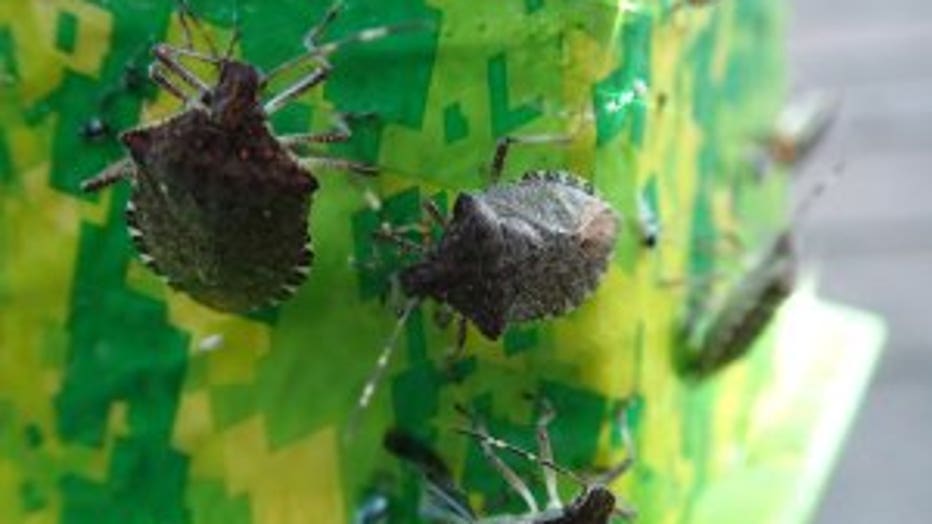Destructive stink bugs infesting Puget Sound region, researchers say
PULLMAN, Wash. -- Researchers for Washington State University are being deluged with reports of brown marmorated stink bugs, especially from western Washington.
Entomologist Michael Bush says he has received 300 reports in three weeks about the smelly creatures.
“We’ve never seen so much activity related to this bug — and so quickly,” he said.
He says the majority of stink bug sightings are from King, Pierce and Thurston counties, with sporadic reports coming to eastern Washington.

Credit: WSU
Bush says the bugs move indoors during the winter months, and now are trying to get back outside.
Marmorated stink bugs pose a major threat outdoors -- they gorge on vegetables, fruit trees, nuts and ornamental plants.
“The more we learn about this stink bug species, the more amazed we are by its generalist feeding habits,” said WSU extension entomologist Elizabeth Beers, a member of a national scientist SWAT team. “Naturally, our aim is to keep them from damaging Washington’s crops and orchards,” she said.
They inflicted millions in damage to agricultural crops in the Mid-Atlantic states in 2010, the same year they were first detected in Washington state. They have been found in 21 counties across the state.

The brown marmorated stink bug went from inhabiting one Washington county to 21 counties in just five years. (Courtesy, WSU Tree Fruit Research & Extension)
WSU is among 18 universities monitoring the insect's spread.
You're asked to report sightings of brown marmorated stink bugs -- they are distinguishable from other species because they have thin white bands on their antennae:
Once identified as the brown marmorated variety, snap a photograph with your smartphone to include in an email. Then type your name, the date you found the stink bug, how many, and where — address or city. Then send to: tfrec.reportbmsb@wsu.edu.
For property that’s heavily infested – meaning more than 50 – “if we can, we would love to come get your bugs for our research,” said Beers, who will dispatch entomology graduate students to pick them up.

